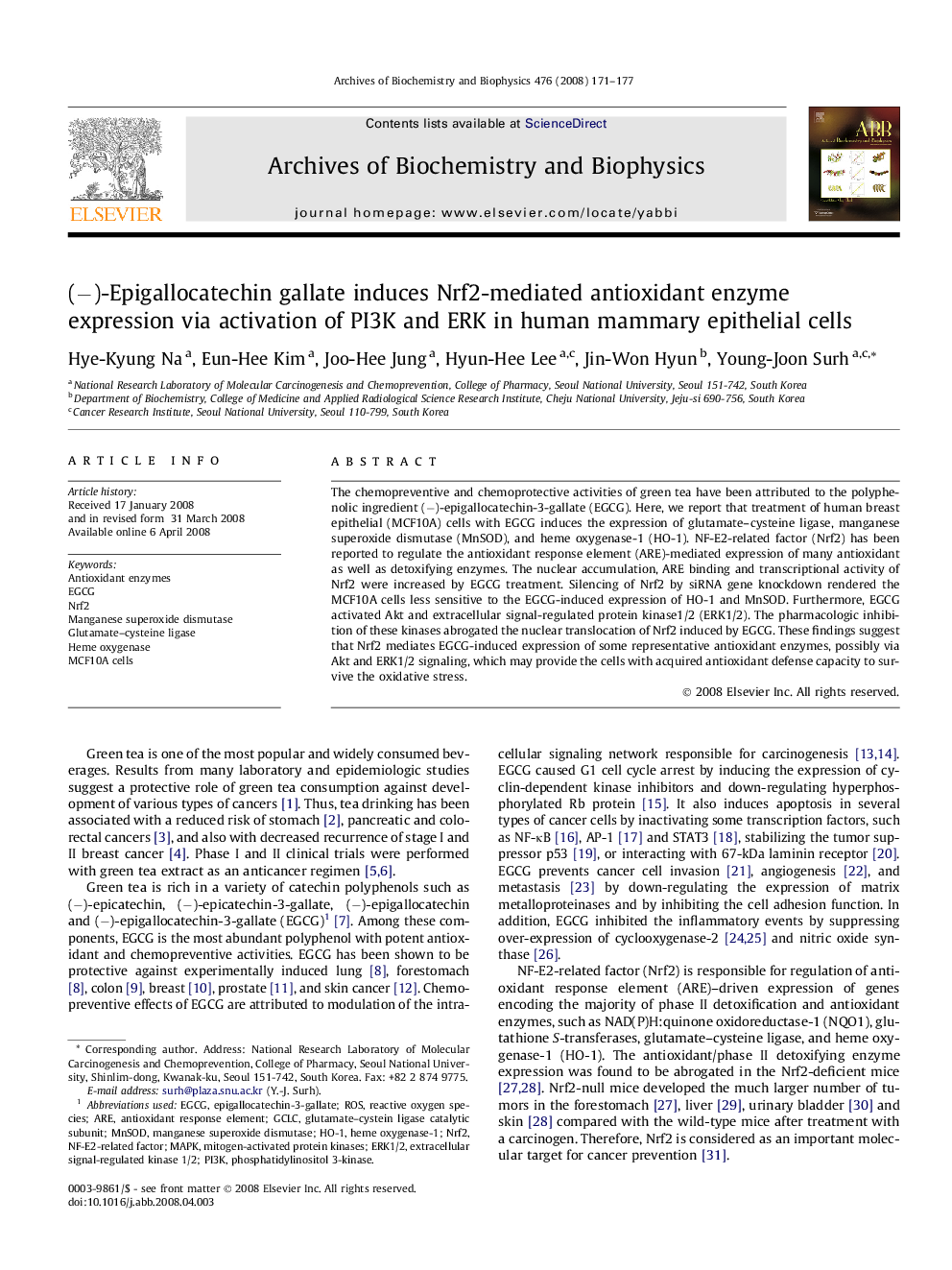| Article ID | Journal | Published Year | Pages | File Type |
|---|---|---|---|---|
| 1926673 | Archives of Biochemistry and Biophysics | 2008 | 7 Pages |
The chemopreventive and chemoprotective activities of green tea have been attributed to the polyphenolic ingredient (−)-epigallocatechin-3-gallate (EGCG). Here, we report that treatment of human breast epithelial (MCF10A) cells with EGCG induces the expression of glutamate–cysteine ligase, manganese superoxide dismutase (MnSOD), and heme oxygenase-1 (HO-1). NF-E2-related factor (Nrf2) has been reported to regulate the antioxidant response element (ARE)-mediated expression of many antioxidant as well as detoxifying enzymes. The nuclear accumulation, ARE binding and transcriptional activity of Nrf2 were increased by EGCG treatment. Silencing of Nrf2 by siRNA gene knockdown rendered the MCF10A cells less sensitive to the EGCG-induced expression of HO-1 and MnSOD. Furthermore, EGCG activated Akt and extracellular signal-regulated protein kinase1/2 (ERK1/2). The pharmacologic inhibition of these kinases abrogated the nuclear translocation of Nrf2 induced by EGCG. These findings suggest that Nrf2 mediates EGCG-induced expression of some representative antioxidant enzymes, possibly via Akt and ERK1/2 signaling, which may provide the cells with acquired antioxidant defense capacity to survive the oxidative stress.
